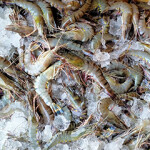WTO: EU can impose billions of dollars in tariffs on US goods, including seafood

The European Union can impose tariffs of up to USD 4 billion (EUR 3.4 billion) on imported products from the United States as a countermeasure for illegal subsidies given to American aircraft-maker Boeing, the World Trade Organization (WTO) has ruled.
The decision, made on 13 October, builds upon the WTO’s earlier finding that recognized the Boeing subsidies were illegal.
In a statement, E.U. Executive Vice President for an Economy that Works for People and Commissioner for Trade Valdis Dombrovskis confirmed the “long-awaited decision” allows the E.U. to impose tariffs on American products entering Europe.
“I would much prefer not to do so – additional duties are not in the economic interest of either side, particularly as we strive to recover from the COVID-19 recession,” Dombrovskis said. “I have been engaging with my American counterpart, Ambassador Lighthizer, and it is my hope that the U.S. will now drop the tariffs imposed on E.U. exports last year. This would generate positive momentum both economically and politically, and help us to find common ground in other key areas. The E.U. will continue to vigorously pursue this outcome. If it does not happen, we will be forced to exercise our rights and impose similar tariffs. While we are fully prepared for this possibility, we will do so reluctantly.”
In October last year, following a similar WTO decision in a parallel case on Airbus subsidies, the Trump administration imposed retaliatory duties that affect E.U. exports worth USD 7.5 billion (EUR 6.4 billion). These duties are still in place today, despite “decisive steps” taken by France and Spain in July to follow Germany and the United Kingdom in ensuring that they fully comply with an earlier WTO decision on subsidies to Airbus, the European Commission said.
The E.C. added that under the current economic circumstances, it is in the “mutual interest” of the E.U. and the United States to discontinue damaging tariffs that unnecessarily burden the industrial and agricultural sectors.
“The E.U. has made specific proposals to reach a negotiated outcome to the long running transatlantic civil aircraft disputes, the longest in the history of the WTO. It remains open to work with the U.S. to agree a fair and balanced settlement, as well as on future disciplines for subsidies in the civil aircraft sector,” the E.C. said. “While engaging with the U.S., the European Commission is also taking appropriate steps and involving E.U. member-states so that it can use its retaliation rights in case there is no prospect of bringing the dispute to a mutually beneficial solution. This contingency planning includes finalizing the list of products that would become subject to E.U. additional tariffs.”
A range of U.S. exports into the E.U. are covered by the E.C.’s preliminary list – from aircrafts to chemicals and agri-foods. In terms of seafood, the many products currently listed for additional import duties if they are originating in the United States include frozen Atlantic and Pacific salmon, frozen albacore and yellowfin tuna, frozen cod, Alaska pollock, frozen and live lobster, frozen coldwater shrimp, scallops, and squid.
If the E.U. imposed tariffs on live and frozen lobster products, it would be a walk-back of the elimination of tariffs on those products earlier this year. In August, the E.U. struck a deal that involved the elimination of E.U. tariffs on U.S. lobster in return for reductions U.S. tariffs on a variety of products, including prepared meals, glassware, propellant powders, cigarette lighters, and more.
The E.U. will still need to request authorization from the WTO to impose the levies. The earliest it can do this is at a meeting scheduled for 26 October.
In March this year, the Appellate Body, the highest WTO instance, confirmed that the United States had not taken appropriate action to comply with WTO rules on subsidies, despite the previous rulings. Instead, it continued its illegal support of its aircraft manufacturer Boeing to the detriment of Airbus, the European aerospace industry and its many workers, it said.
In the parallel case on Airbus, the WTO allowed the United States in October 2019 to take countermeasures against European exports worth up to USD 7.5 billion. This award was based on an Appellate Body decision of 2018 that had found that the E.U. and its member-states had not fully complied with the previous WTO rulings with regard to a repayable launch investment for the A350 and A380 programs.
The United States imposed these additional tariffs on 18 October, 2019.
According to the commission, those E.U. member states concerned have since taken all necessary steps to ensure full compliance.
Photo courtesy of Martin Good/Shutterstock






Share